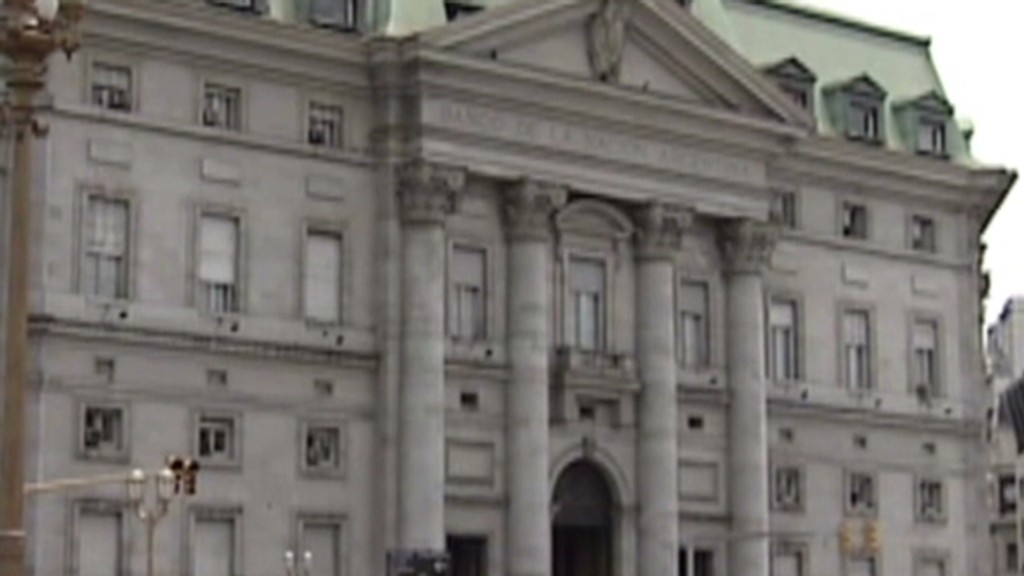
Argentina wants to take its ball and go home in its ongoing debt crisis.
The country is in default again on some of its debt. Negotiations with several hedge funds over debt repayments broke down so badly in July that Argentina is actually trying to change the laws overseeing its bond contracts.
President Cristina Kirchner submitted a bill Tuesday to Argentina's congress that would take the bonds in contention and put them under the Argentine judicial system. At the moment, many of the bonds fall under the U.S. legal code, where various court orders have hamstrung Argentina's options.
It's uncertain whether the jurisdiction switch is feasible, but Argentina continues to fight the hedge funds.
Related: Get caught up on Argentina's debt crisis
The ordeal all goes back to 2001 when Argentina initially defaulted. Many of its bondholders (92%), fearing they wouldn't get much, if anything, accepted a lower repayment. But a small group of other bondholders, led by hedge funds Elliott Management and Aurelius Capital Management, held out for full payment.
Until this year, Argentina refused to pay or even talk to the "holdouts."
The holdouts sued Argentina more than a decade ago and won a federal court ruling in 2012 that said Argentina had to pay up. Argentina then took the case to the Supreme Court, which decided in June to agree with the earlier ruling and effectively force negotiations with the holdouts.
Complicating matters, the 92% of bondholders who took the low pay deal have a clause in their contracts that say the holdouts can't get a better deal than them until the clause expires next year.
Argentina's talks with the holdouts went nowhere, breaking down again last week. Capital Economics predicts things are struck, possibly until President Kirchner's term expires. In 2016.
Related: At least one hedge fund is betting Argentina will be just fine
The South American nation has slipped into recession.
"If local government and corporate bond yields drop back as a result of the government's bond swap, damage to the real economy -- which is already very weak -- may be limited," wrote research firm Capital Economics in a note to clients.
The country's volatile Merval stock market index, though off nearly 1.4% today, is still up 62% for the year. Bond prices for debt due in 2033, however, have fallen.


